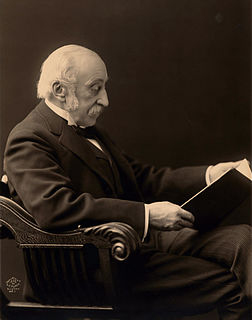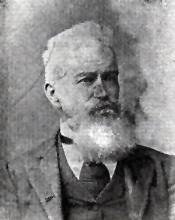A Quote by Albert Einstein
Is it not better for a man to die for a cause in which he believes, such as peace, than to suffer for a cause in which he does not believe, such as war?
Related Quotes
There never was a good war," said Franklin. "There have indeed been many wars in which a good man must take part, and take part with grave gladness to die if need be, a willing sacrifice, thankful to give life for what is dearer than life, and happy that even by death in war he is serving the cause of peace. But if a war be undertaken for the most righteous end, before the resources of peace have been tried and proved vain to secure it, that war has no defense, it is a national crime.
Truly, there are terrible primal arcana of earth which had better be left unknown and unevoked; dread secrets which have nothing to do with man, and which man may learn only in exchange for peace and sanity; cryptic truths which make the knower evermore an alien among his kind, and cause him to walk alone on earth.
Wonder [admiratio astonishment, marvel] is a kind of desire for knowledge. The situation arises when one sees an effect and does not know its cause, or when the cause of the particular effect is one that exceeds his power of understanding. Hence, wonder is a cause of pleasure insofar as there is annexed the hope of attaining understanding of that which one wants to know. ... For desire is especially aroused by the awareness of ignorance, and consequently a man takes the greatest pleasure in those things which he discovers for himself or learns from the ground up.
Man must learn to believe in that which he does not, at the moment, see in order to grant himself that which he desires to have. Man's prayers are always answered, for he always receives that which he believes. The law that governs prayer is impersonal. Belief is the condition necessary to realize the desire. No amount of pleas or ritual will bring about the fulfillment of your desires other than the belief that you are or have that which you want.
The Americans who went to Europe to die are a unique breed.... (They) crossed the seas to a foreign land to fight for a cause which they did not pretend was peculiarly their own, which they knew was the cause of humanity and mankind. These Americans gave the greatest of all gifts, the gift of life and the gift of spirit.
Evolution does not attempt to explain the origin of life. It is simply a history of the process of life. With the secret cause of life evolution has nothing to do. A man, therefore, may be a materialistic evolutionist or a theistic evolutionist; that is, he may believe that the cause is some single unintelligent impersonal force, or he may believe that the cause is a wise and beneficent God.





































